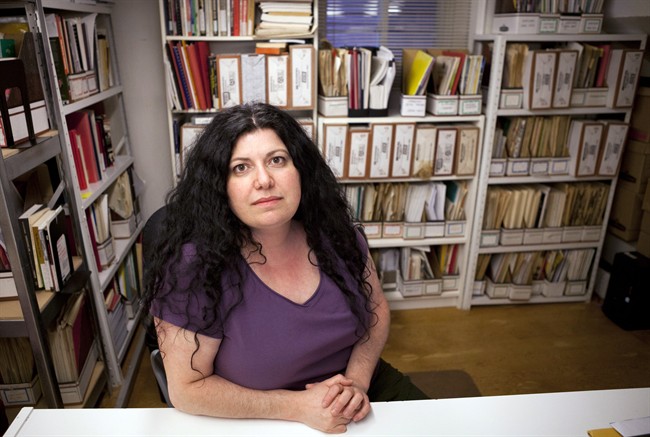Canada’s oldest rape crisis centre will see its city funding slashed if does not remove its policy of only serving female-born women.

The Vancouver Rape Relief and Women’s Shelter faced off with city councillors and transgender activists last week over its policy on not accepting trans women into its shelter.
The shelter’s services are available to all “born females” who have experienced male violence. This stance has been highly contentious amid the trans community as Vancouver Rape Relief receives funding from the province as well as a grant from the City of Vancouver.
But the shelter’s city grant may be revoked as of 2020 if it does not all accept all women, including persons who identify as women.
“They have done fantastic work and are a valuable service, but we wanted to make sure they extend it for everyone. If we are giving public funds, we need to give it to organizations that are inclusive,” Vancouver City Councillor Sarah Kirby-Yung said.
WATCH: Protests planned over radical Canadian feminist’s event

Kirby-Yung was among the councillors who voted on March 14 to revoke the funding for the rape crisis shelter, which will take effect in 2020 — unless it changes its policy.
“I don’t want to live in a community that is not inclusive and reject people especially if someone is going through trauma,” Kirby-Yung said.
Councillor Christine Boyle also backed the funding cut, saying “trans women and sex workers deserve care and protection.”
Hilla Kerner, a representative of the Vancouver Rape Relief and Women’s Shelter, called the council’s decision “discriminatory,” adding the shelter will not change its policy and is “committed to our principle of how we work.”

Get daily National news
“Vancouver City Council’s decision is intended to coerce us to change our position and practice of offering some of our core services only to women who are born female,” the shelter said in a statement.
The city funds around $34,000 annually to the Vancouver shelter, which has a budget of more than $1 million per year.

Morgane Oger, a transgender activist, applauded the city’s decision, adding that it’s the last B.C. women’s shelter that she knows of that denies services to the trans community.
“Their policy is discriminatory based on gender identity, which is against the law,” she said.
“They are saying that transgender women are men and not women.”
“There is a long history of discrimination and violence against transgender women,” Oger said. “We are a vulnerable group. There’s stigma and shame .. and then to ask for help and have someone on the phone say ’sorry’ you are not women enough for us to help you’.”
But Kerner said if a transgender woman calls their crisis line, someone at the shelter will always make sure that the person feels safe and secure.
However, she added that while she believes trans women need support and protection, she said their “lived experience” is different from a female-born woman.
But Kirby-Yung and Oger maintain that denying service to all women, including people who identify as women, is discriminatory.
“Canada has enacted the explicit prohibition of discrimination on the basis of gender identity or expression,” Oger said. “Publicly-funded organizations are subject to the discrimination and inclusion policies and guidelines of their funding agencies.”
Kirby-Yung said that since the City of Vancouver decided to revoke the shelter’s funding, a slew of online hate speech has followed. “It’s troubling to see. And this is what people in the trans community go through all day. This just affirms that we made the right choice. We are trying to overcome this type of attitude.”
WATCH: Identifying as LGBTQ as a young person can bring difficult experiences

This is not the first time the Vancouver Rape Relief and Women’s Shelter has come under fire. In 1995, Kimberly Nixon, a transgender woman, was denied training as a volunteer at the shelter because “she did not share the same life experiences as women born and raised as girls and into womenhood,” the shelter’s websites stated.
Nixon launched a human rights complaint against the women’s shelter for excluding her as a volunteer peer counsellor. After years in court, the B.C. Court of Appeals ultimately ruled in favour of the Vancouver Rape Relief and Women’s Shelter.
In the court decision, the chief justice said, “excluding Nixon based on her experience as a male is not discriminatory under the code,” as the shelter serves a specific group of women, so it may define who is a woman and who can volunteer there.
- Trial starts for man charged in connection with fatal stabbing outside Vancouver Starbucks
- Deaths of Prince Rupert family ruled homicide-suicide, inquest finds
- More than 100 B.C. First Nations urge Eby to uphold DRIPA or risk backslide
- Jim Robson, legendary voice of the Vancouver Canucks, dies at 91








Comments
Want to discuss? Please read our Commenting Policy first.